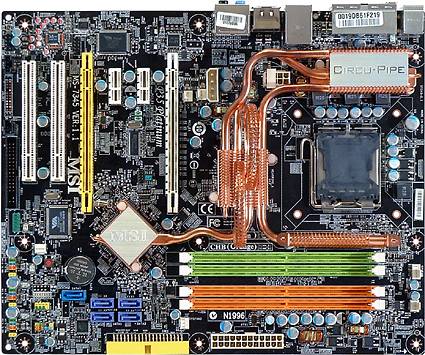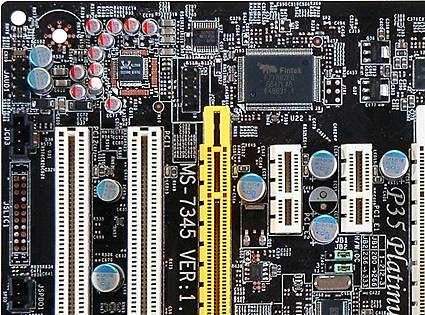MSI P35 Platinum Makes a Comeback
Re-Introduction
We issued the same warning to all the motherboard vendors for our P35-DDR2 compatible motherboard shootout. Compare Prices on P35-DDR2 Motherboards As we stipulated for our earlier DDR3 motherboard comparison, we said every board would be treated as a retail sample, and no excuses would be made for products still in development that performed badly. Yet two boards arrived that simply weren't ready for prime time, and this is our second update in which another vendor, in this case MSI, gets another chance.
As with the Biostar TP35D3-A7 Deluxe, the only way MSI qualified for any compassionate relief was by completely failing in the overclocking portion of its original review. We received a replacement board of revision 1.1 a few weeks later following its dismal bus speed results, but gave MSI more time to mull over its failure before working the newly-revised board into our busy test schedule.
Unlike the previously updated Biostar board, the MSI has a few visible circuitry changes that require a little more consideration before we move on to test it.
The smallest of changes can make all the difference in overclocking, such as the repositioning of a capacitor (including the addition of a place to solder it) between two PCI-Express x1 slots hints, indicating that the circuit layout has been altered.
Also notice that there are now jumpers located next to one of the x1 slots, which can be used to force CPU FSB detection from 200 to 266 MHz (FSB800 to FSB1066) or from 266 to 333 MHz (FSB1066 to FSB1333). This could aid in setting the board to the correct boot strap when overclocking, but a BIOS-FSB adjustment should make those changes just as effectively.
Notice that the header marked JSL1C1 no longer has pins; this is the connection for MSI's VoIP-to-telephone card, which is included in the upscale P35 Diamond package that was to be an optional component for the P35 Platinum.
Filling those empty solder spots with pins would not restore this option, as MSI also changed the audio codec from the 8+2 channel multi-streaming plus VoIP Realtek ALC888T to the smaller and less-elaborate eight-channel ALC888. The loss of two separate channels for unfettered headset use while other audio files play through the speakers downgrades this board firmly into the mid-priced market. MSI now offers a $15 mail-in-rebate through qualified vendors, which could compensate would-be buyers, at least until its retail price comes down by a similar amount.
Get Tom's Hardware's best news and in-depth reviews, straight to your inbox.


